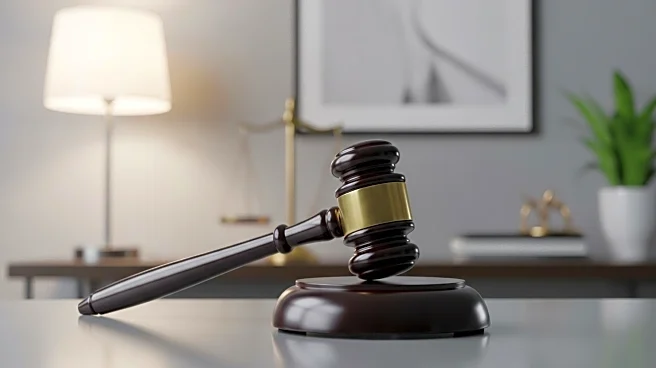What's Happening?
In a recent antitrust trial, Mark Krotoski, a partner at Pillsbury Winthrop Shaw Pittman, faced severe criticism from Judge Cristina D. Silva of the District of Nevada. The judge accused Krotoski of unprofessional conduct, citing a specific incident where he misrepresented the whereabouts of an expert witness. Krotoski claimed the witness was traveling, but it was later revealed she was running errands. Judge Silva described this as a 'lie' and noted other instances of unprofessional behavior, such as delaying proceedings and providing evasive answers. Krotoski expressed surprise at the judge's order to show cause, arguing that his actions did not demonstrate an intent to mislead the court. However, Judge Silva attributed his conduct to a sense of entitlement, highlighting a disconnect between Krotoski's professional experience and his actions during the trial.
Why It's Important?
This incident underscores the critical importance of integrity and professionalism in legal proceedings. The judge's strong rebuke of Krotoski's actions serves as a reminder of the ethical standards expected in the legal profession. Such behavior can undermine the judicial process and erode trust in legal institutions. For law firms, maintaining a reputation for honesty and professionalism is crucial, as any deviation can have significant repercussions, including potential disciplinary actions and damage to client relationships. This case also highlights the judiciary's role in holding legal professionals accountable, ensuring that justice is administered fairly and transparently.
What's Next?
The outcome of this incident may lead to further scrutiny of Krotoski's conduct and potential disciplinary measures. It could also prompt Pillsbury Winthrop Shaw Pittman to review its internal policies and training programs to prevent similar occurrences in the future. The legal community may see increased emphasis on ethical training and accountability, as firms strive to uphold their reputations and avoid similar controversies. Additionally, this case may influence how judges address and penalize unprofessional conduct in court, setting a precedent for future cases.









